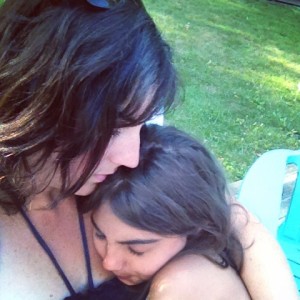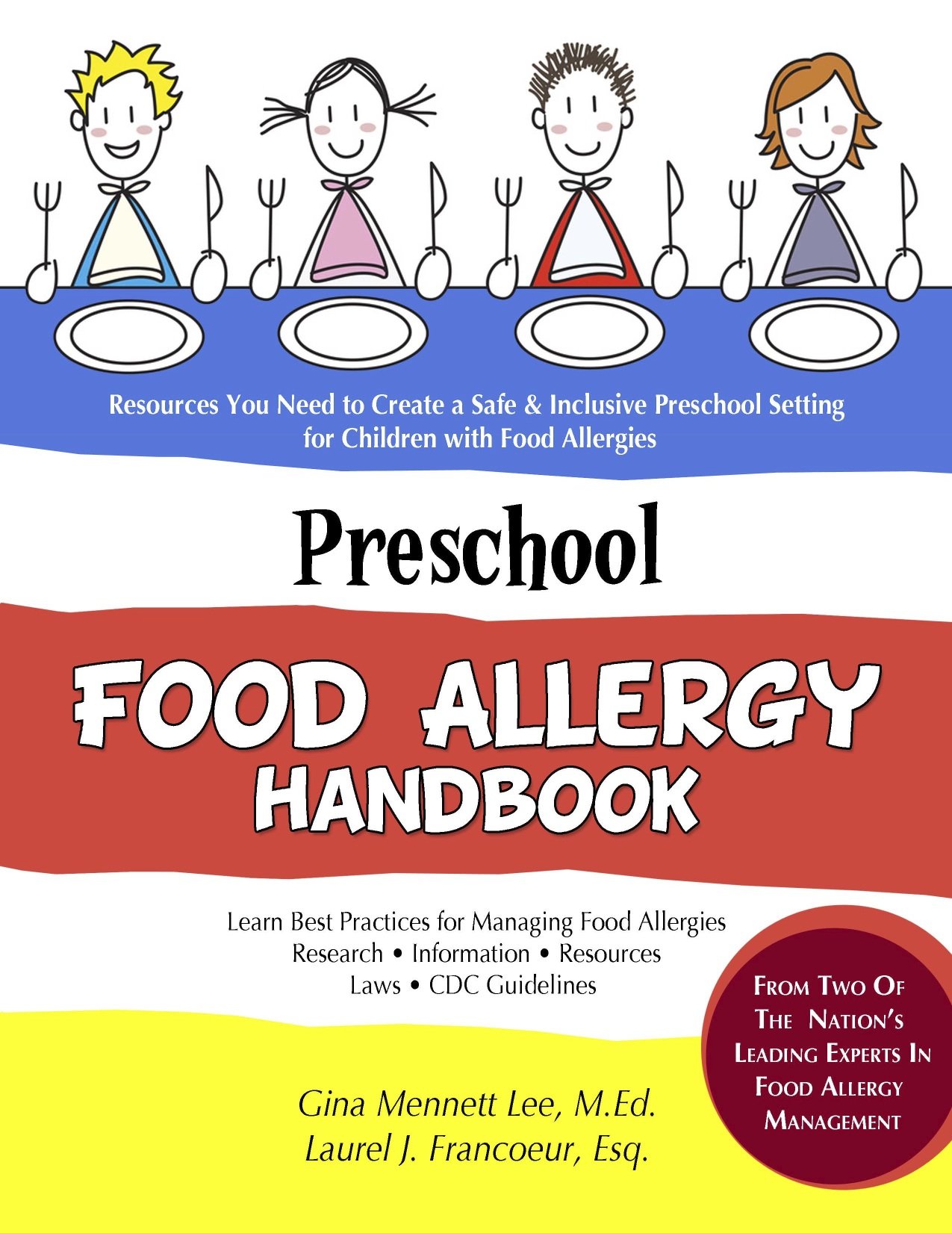I am so excited to have Jeanne Herzog, PhD write a guest blog post for FoodAllergyConsulting.com. I first met Jeanne when we were both speakers at a conference in Wisconsin. She spoke about the emotional impact of food allergies on children. It was a wonderful presentation and her kind, warm demeanor made me immediately like her. Recently, I asked her if she would write a blog about identifying and managing anxiety. While the intended audience is parents and caregivers of children with food allergy, I think you will find that the information applies to many. To find out more about Jeanne, be sure to visit her website. Don’t miss Jeanne’s favorite resources listed at the bottom of this post. -Gina
SAFE FROM ANXIETY
Guest Blog Post
by Jeanne Herzog, PhD
The other day I sat in my play therapy room with a 5 year old girl who has a milk allergy. Five year olds love to play and she was no exception. But it was our first visit and she had a grown up conversation with me about the cookie she ate that caused a reaction, how her throat felt, why she doesn’t want to eat the crackers she knows are safe and how she sometimes gets to have a partner at her “milk-free table” at school. After a couple of exposures and reactions in her young little life, she, personally, had started restricting her choice of foods and “reading” food labels. All such grown up behaviors for age 5! Part way through our session she went from quiet, reserved and intellectual to playfully counting, organizing and naming my stuffed animals. She knew that I understood her dilemma and decided I was safe. By the end of our session, she was telling her mom she didn’t want to leave. She asked me if at our next session we could write a story together about milk allergies. Before she left she whispered to her mom that she wanted some crackers when she got home.
If you’re reading Gina’s Blog, you’re likely trying to learn all you can about how to help your child live in a world where they may face a threat simply eating a meal, going to a birthday party or sitting at the lunch table. It all sounds very anxiety-provoking to me! While high anxiety (excessive worry and nervousness) is often difficult to live with, a little bit of it is good for everyone. It keeps us on our toes, tells us to question or check and protects and motivates us.
It’s understandable why you and your child may experience anxiety while living with a food allergy. It’s our natural human instinct to need food to sustain us and need to belong and connect with others for love. And we have a basic need to live safely, to prolong our lives. Living with a food allergy challenges our efforts to try to meet all of these needs. If a child is allergic to tree nuts, he may fear exposure and decide that all foods are not safe. If a teen has an allergy to peanuts, she may isolate herself from her peers if she doesn’t think their gatherings are safe.
Teach your child to be a little anxious, diligent and mindful. But watch for too much anxiety in yourself and in your child.
Too Much Anxiety?
You’ll know your child is experiencing too much anxiety when he/she:
- is irritable most of the time
- begins to restrict even known safe foods
- isolates and refuse play dates even in safe environments
- has difficulty falling asleep or is wakeful
- is experiencing exposure symptoms without an actual exposure
- is experiencing symptoms of illness such as stomach ache or headache, without cause
- regresses in development
- is more likely to lose his/her temper; cry or argue.
- experiences anxiety symptoms such as heart palpitations, clamminess, nausea, dizziness, fatigue or begins to experience “what if” and negative thinking.
- has nightmares and flashbacks about an exposure or distressing reaction
Safety Plan for Emotional Health
Help your child with these strategies to prevent, or cope with, too much anxiety.
Accurate Knowledge is Power:
- Learn about allergies from a young age.
- Learn and follow your allergy safety plan.
- Talk to your parents, teachers, friends about food allergies.
- Learn about stress and anxiety so you can use it to protect you, not hurt you.
- Learn ways to calm your thoughts and body.
Calm Your Thoughts
- Notice your negative thoughts.
- Learn to add positive ideas to your thoughts.
- Look around you and see that you’re safe.
- Focus on what you can do, instead of what you can’t
- Ask for reassurance from someone you trust.
- Practice the skills you need to live with your food allergy.
Calm Your Body
- Notice how anxiety and worry feel in your body.
- Get your body moving.
- Get a good night’s sleep.
- Play, play, play!
- Try a relaxation exercise.
- Ask for a hug from someone you trust.
- Belly breathe and drink cool water.
Other Ideas
- Encourage journaling about successes.
- Create an incentive plan for trying new safe foods.
- Create a simple safe checklist to use before choosing a food.
- Make relaxation a family activity.
- Find and use an anxiety workbook or other program.
- Create an allergy-friendly support team.
Do We Need Help?
It might be best to seek help from a professional who works with children and anxiety when:
- you think you and your child need help creating an emotional safety plan to prevent too much anxiety
- you notice some of the symptoms above lasting more than 2 weeks straight without relief
- your child’s anxiety is seriously affecting their physical health, their academic progress and their relationships
- your child’s fears inhibit them in multiple areas of life
- your child has an exposure and a particularly distressing reaction that might cause some traumatic memories
Jeanne’s Recommended Resources:
Turnaround: Anxiety CD and Workbook Program


